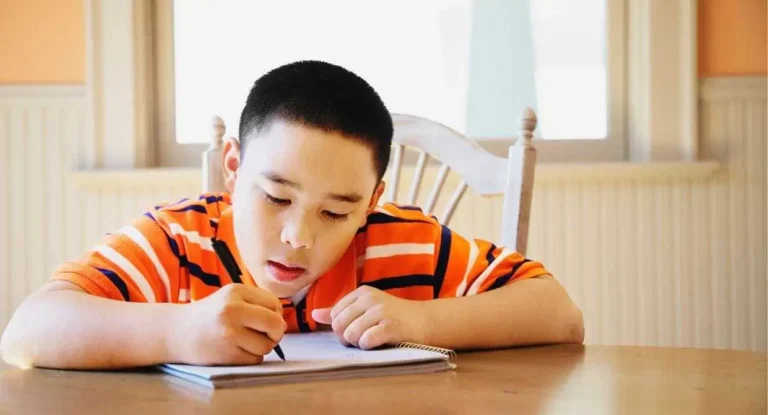Every parent is usually concerned about their children’s academic well-being; hence, they try all they can to ensure that their kids are positioned for success. One of the ways to help your child in academics is by helping them adopt and maintain good study habits.
Most parents have reported struggling with their children, especially getting them to study and do homework. It can be overwhelming and frustrating as you only want the best for your child and have other commitments such as work and caring for other family members.
If you are in such a situation or are new to parenting and wondering how to enhance your child’s study habits, we’ve got you covered. Here’s a compilation of approaches for improving your child’s study habits.
Create a Study Schedule
One reason the students get overwhelmed with schoolwork and opt to seek help from academic helpers from sites like https://essayusa.com/ is the lack of proper personal timetables. So, the first step in enhancing a child’s study habits should be creating a schedule. A schedule helps set aside time for studies and other activities. It is also an excellent tool for ensuring proper allocation of time to all subjects to create a more balanced study approach.
Besides, a well-designed timetable facilitates organization, allowing prioritization of academic work in order of urgency. It also allows you to help your kid focus on their weak areas by creating more time for the subjects they are struggling with.
A quick hack for creating a study timetable is to make use of a calendar to mark all important academic activities and dates. You can also use different colors for different subjects and levels of urgency of schoolwork.
Establish Routines
Children thrive on routines. To ensure a smooth flow of activities, it is good to establish routines that favor studies. It includes sleeping time, waking time, and designated time for reading. Routines help create an environment where children are well aware of their responsibilities, where they should be, and when.
It brings about orderliness. For instance, if homework is at 8:00 pm, ensure that your kid is sitting and concentrating on their homework by that time.
Routines create habits. While the first few times may be hard for the child, make sure to carry through for long-lasting impacts. A routine creates a mindset where a child always knows what to expect, allowing them to transition better between activities. They can easily take a break from other things and focus on their books and assignments.
Create a Comfortable and Quiet Study Space
Studying is a process that requires concentration. You cannot expect a child to concentrate on their revision or homework while other kids are running around the same space, playing video games, or doing all sorts of things that kids do.
To enhance your child’s study habits, first designate a space for studying. The space needs to be quiet and comfortable, depending on your child’s age. For instance, for younger children, a kitchen table will do; however, as they grow older, you might want to consider buying a desk and a chair.
The designated area should be free from distractions to promote focus. Also, ensure that the area has access to a charging port for charging devices (if they use the devices for studies) and has pens, books, or any other material needed during the study.
A study area helps to boost concentration by minimizing distractions and setting up your kid for a good study session. It also helps them associate the space with studies, which allows them to tune into books easily.
Prioritize Good Sleep and Playing Sessions
Lack of sleep can result in reduced motivation to do schoolwork, and one might have to delegate it to professional writers like those described in the EssayUSA review so they can turn the work in punctually. Adequate sleep is thus essential for keeping one motivated to handle school-related work.
Doctors recommend an average of 9 to 12 hours of sleep for children aged between 6 and 12 years and 10 to 13 hours for the ages of 3 and 5. For school-going children, this means that they have to sleep early to wake up early. You should make it your responsibility to ensure that your kid gets adequate sleep. It includes regulating your child’s screen exposure to ensure they get enough sleep and energy to study.
During study sessions, it is advisable to create breaks where the child can play to freshen up their mind. Play is essential for children regardless of age. It helps stimulate their bodies and make them active. In early childhood development, play is necessary for mental and physical growth, which play crucial roles in enhancing children’s academic performance.
Celebrate Your Child’s Wins
The human brain operates on a reward system. When people feel appreciated and recognized, they get motivated to do more.
Additionally, acknowledgment conditions the mind that good behavior is rewarded and bad behavior is discouraged. Therefore, if your child performs well, do not shy away from congratulating them. Children need constant motivation to keep up with good study habits.
For instance, if your child successfully finishes their homework without creating trouble and sticks to the study routine, appreciate them. Let the child know you are happy. You can reward them with their favorite game, snack, show, or any other pleasant thing. It will motivate the child to do even better.
Integrate At-Home Learning Technology
Technology is here to stay; hence, we should use it to facilitate learning. Make it your responsibility to learn how to use devices and apps that facilitate learning.
This will help you and your child to have interactive learning. For instance, you can learn how to use educational game apps and play the games with your child. It will make learning fun, and the child will not view studying as a chore.
Signing Off
Instilling effective study habits in kids is an uphill task for most parents. However, it is your responsibility to make sure that your child develops good study habits to help them in their present and future academic endeavors. By laying the correct foundation, you’ll be setting up your child for success, especially in later stages when they will have to do it alone.












